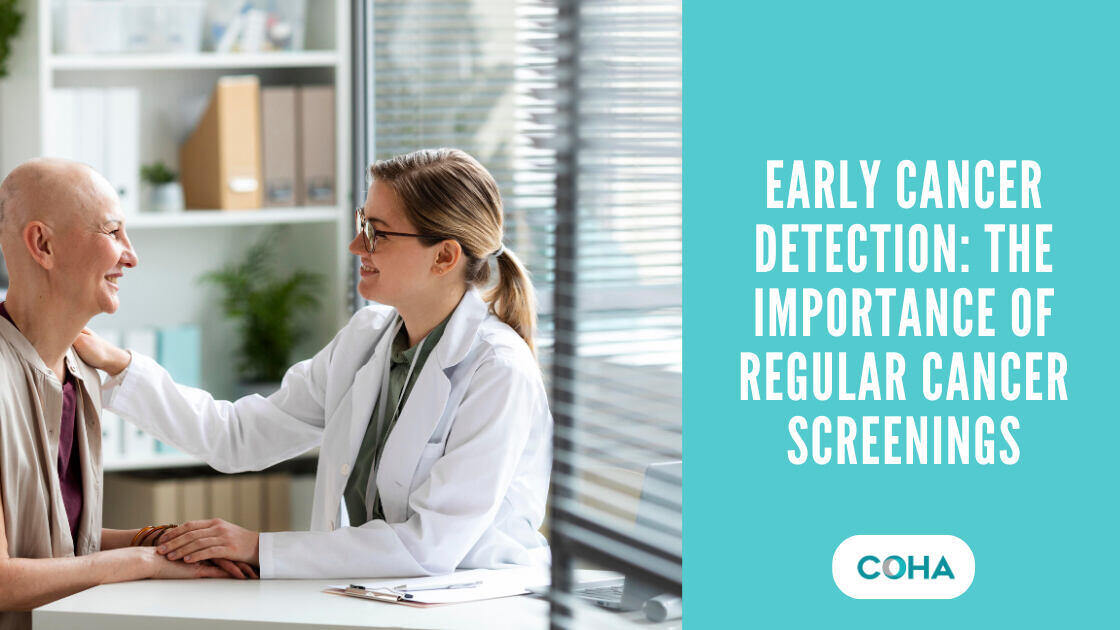


Cancer is a significant global health issue, impacting millions of lives annually. While advancements in treatment options have improved survival rates, one of the most critical factors in fighting cancer is early detection. Cancer detected in its early stages is often easier to treat, resulting in better outcomes and reduced mortality rates. This is where regular cancer screenings come into play.
Cancer screenings are medical tests conducted to detect cancer before any symptoms appear. The goal is to identify cancer at its earliest stages when it is most treatable, and before it spreads to other parts of the body. Screening tests do not diagnose cancer but can flag abnormalities that may require further investigation through diagnostic tests, such as biopsies.
Different cancer screening tests are recommended for various types of cancer, including breast, cervical, colorectal, lung, and prostate cancers. Early detection through cancer screenings often leads to better treatment outcomes and can even prevent cancer from developing if pre-cancerous conditions are detected and treated early.
The benefits are as follows:
1. Early Detection Saves Lives
The most significant benefit of regular cancer screenings is that they save lives by detecting cancer in its early stages. When cancer is caught early, treatments like surgery, radiation, and chemotherapy are often more effective. For example, breast cancer detected in its early stages through mammograms has a much higher survival rate compared to cancer that has spread to other parts of the body.
2. Less Invasive Treatments
Cancers detected early generally require less aggressive treatments. For instance, early-stage cervical cancer can often be treated with less invasive procedures like simple surgery, whereas late-stage cancer may require extensive surgeries, chemotherapy, and radiation.
3. Reduced Healthcare Costs
While cancer screening tests may involve an upfront cost, the long-term financial savings can be significant. Treating cancer in its advanced stages is much more expensive than treating it early. Early detection can reduce the need for expensive treatments, hospitalizations, and surgeries.
4. Prevention of Cancer Development
Some cancer screening tests can detect abnormal cell changes before they turn into cancer. For instance, Pap smears and HPV tests can identify pre-cancerous changes in cervical cells, allowing for early intervention and preventing the development of cervical cancer altogether.
Several cancer screening tests are recommended based on individual risk factors, including age, gender, and family history. Below are some common cancer screenings that everyone should be aware of:
1. Mammograms (Breast Cancer Screening)
Mammograms are X-ray images of the breast used to detect breast cancer. Regular mammograms are recommended for women, especially those over the age of 40 or who have a family history of breast cancer. Early detection of breast cancer can significantly improve survival rates, as it is easier to treat when confined to the breast tissue.
2. Colonoscopies (Colorectal Cancer Screening)
A colonoscopy is a screening test that allows doctors to examine the colon and rectum for polyps or cancer. Colorectal cancer is one of the most preventable cancers, as polyps can be removed before they turn into cancer. Regular colonoscopies are recommended for adults over the age of 50 or earlier for those with a family history of colorectal cancer.
3. Pap Smear and HPV Test (Cervical Cancer Screening)
A Pap smear is a screening procedure used to detect abnormal cells in the cervix, which could indicate cervical cancer or pre-cancerous changes. The HPV (human papillomavirus) test checks for the presence of the virus that can cause cervical cancer. Regular screening is recommended for women starting from age 21.
4. Prostate-Specific Antigen (PSA) Test (Prostate Cancer Screening)
The PSA test measures the level of prostate-specific antigen in a man's blood. Elevated levels can indicate prostate cancer and regular screenings are typically recommended for men over 50 or earlier for those with a family history of the disease.
5. Low-Dose CT Scan (Lung Cancer Screening)
For people at high risk of lung cancer, such as long-term smokers, a low-dose CT scan can help detect lung cancer early. This screening test can find lung cancer at an early stage when treatment is most likely to be effective.
Despite the clear benefits of cancer screening tests, many people delay or avoid screenings due to several barriers, including:
It's vital to understand that cancer screenings are an essential part of preventive healthcare. If you're unsure which screenings you need, the best course of action is to discuss your personal risk factors with your healthcare provider. Regular check-ups can help you stay on track with recommended screening tests based on your age, gender, and medical history.
Many organizations also provide resources to help individuals access affordable cancer screening services. Being proactive about your health and scheduling regular screenings can save your life.
At COHAMed, we understand the importance of early cancer detection. Our experienced team offers a wide range of cancer screening services tailored to your individual needs. Whether you're due for a mammogram, colonoscopy, or another screening test, our compassionate medical professionals are here to guide you through every step of the process. Contact us today to schedule your cancer screening and take control of your health. Visit us for more information on our services and how we can help you stay proactive about your health.